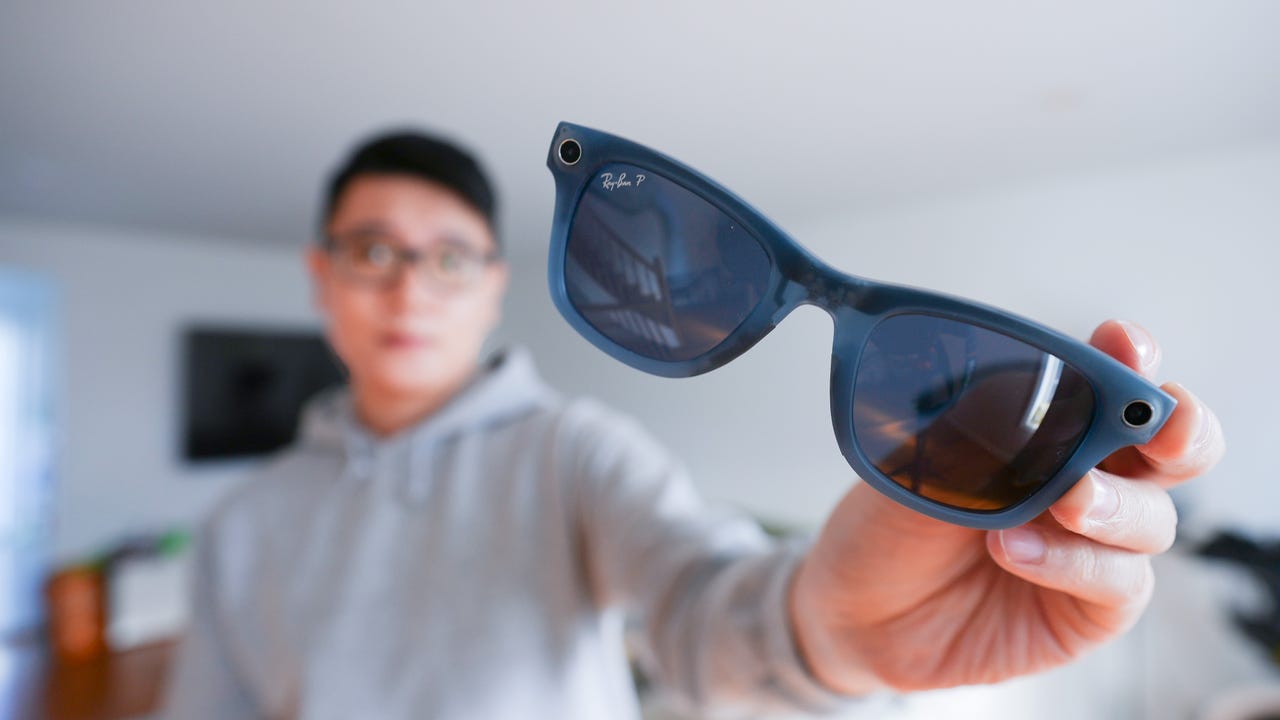After Quest 3 success, Meta's first true AR glasses to be revealed this year

Meta's $299 Ray-Ban smart glasses
While AR glasses, including the ill-fated Google Glass, have been around in some form for several years now, they've mostly struggled to find a foothold in the market.
Mark Zuckerberg is out to change that, as Meta is set to reveal its first "true" augmented reality glasses this fall at the company's Connect event for third-party developers, according to Business Insider.
Also: The most jaw-dropping demo at MWC was from a brand I wasn't expecting to see
The glasses, not related to the 2019 Meta/Ray-Ban collaboration or the 2023 redesign, have been in development for several years now under the Reality Labs division of Meta, which oversees all of the social media giant's augmented reality, virtual reality, and artificial intelligence projects.
Not much is known about the project, but Zuckerberg did post a photo earlier this month on Threads that appeared to show several prototypes of the device. While Meta reportedly wants to have a working demo of the glasses for reveal later this year, a consumer version available for purchase is still likely several years away.
With the surprise success of the Meta Quest 3 headset (which ZDNET named its 2023 product of the year), it's clear that Meta has a renewed focus on wearables. So what might Meta's new glasses do, and what could you possibly use them for?
The company's first Ray-Bans weren't AR at all and primarily focused on listening to music and recording video. The 2023 version added a built-in Meta AI to answer questions and a vastly improved camera with live-streaming capability, but they stopped at being smart glasses.
Review: Apple Vision Pro: Fascinating, flawed, and needs to fix 5 things
Meta's newest venture appears to go beyond smart glasses and will likely be more similar to Xreal's AR glasses that include spatial computing capabilities -- what Apple's Vision Pro headset is built around. These glasses have a built-in display that's part air casting, part virtual desktop, and part AR space that can be used to play games, watch movies, or serve as an extension of your computer screen.
There are certainly some cool possibilities to explore, but here's the question: can Meta finally make AR glasses mainstream?
